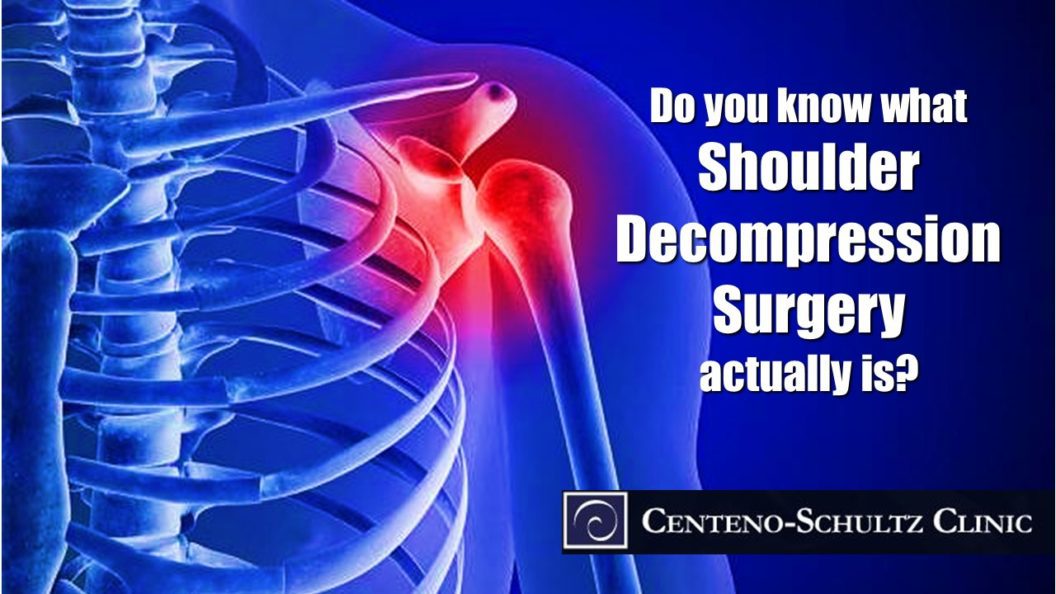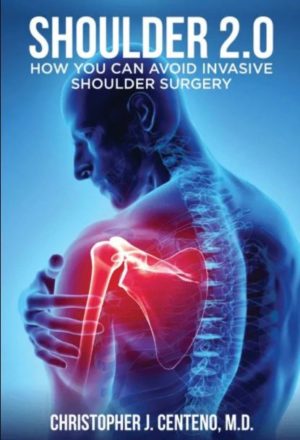Month after month, it seems we’re seeing more and more high-level research evidence showing many orthopedic surgeries just don’t work. Decompression surgery to release the shoulder is one of those.
Understanding Shoulder Decompression
With shoulder decompression, bone spurs and ligaments are released by cutting them away from the structures they are impinging upon. The idea is to provide extra space by releasing the pressure on the rotator cuff muscles and bursa, which will then allow the shoulder to function properly.
On the surface, it seems simple enough; however, when we dig a bit deeper, we find it is a bit more complex as it is associated with a number of problems, such as shoulder instability and poor pain relief.
Shoulder Decompression Creates Instability
It’s important to understand that most bone spurs (or small growths of bone) react to abnormal forces and develop to provide stability to a joint. While some can cause problems, many are there to help you, not hurt you. Bone spurs can form in many areas of the body, such as the neck, back, knee, ankle, and shoulder, and as long as they aren’t doing damage, such as pressing on a nerve, it’s usually best to leave them alone. Why? If we remove them, we’re just reintroducing instability back into the joint, and naturally, more bone spurs will grow again to try to address that instability before more damage is done.
It’s also important to understand that the ligaments the surgeon cuts away are also imperative for stabilizing the shoulder. When they are cut, these ligaments can no longer function as intended, and this causes instability in the shoulder. This creates more trauma to the rotator cuff and shoulder over time.
Why is shoulder stability so important? The shoulder is a very intricately constructed joint; it is one of only two ball-and-socket joints in the body (the hip is the other), and they are constructed this way to allow for a full range of rotational and other motions in those joints. Along with all of this motion, the shoulder joint also has a precise degree of stability that is required for proper function. This requires strong and healthy shoulder muscles, tendons, ligaments, joint structures, and much more to make sure the shoulder is stable.
Shoulder Decompression May Not Relieve Pain
Research has also found that surgery for rotator cuff tears in the shoulder, for example, doesn’t guarantee pain relief. Why? Pain in the shoulder has been shown to be better impacted by the chemical environment in the joint. Shoulder surgery of any type isn’t going to be able to address balancing the chemical levels in the shoulder, so this may explain why so many still have pain after shoulder surgery, which, incidentally, is the main reason patients give for undergoing surgery in the first place.
Shoulder Decompression Surgery No Better than Sham Surgery?
A study published in January of this year involved 51 surgeons and over 300 patients randomly placed into a surgery group (shoulder decompression) and a nonsurgery placebo group (arthroscopy only, no surgery). Researchers concluded that the outcomes in those undergoing shoulder decompression surgery were no better than patients in the sham (or no surgery) group. So those who had shoulder decompression surgery fared no better than those who didn’t!
If your doctor is recommending shoulder decompression surgery to release bone spurs and ligaments in your shoulder, it’s a good idea to consider the interventional orthopedics options first. If your shoulder joint (or any other joint) has bone spurs, this is a good sign there would be instability without them, so surgery would be a bad idea. In addition, if you have tendon or ligament issues in the shoulder, advanced orthobiologics (e.g., your own platelets or stem cells) may be able to help. If you’re a candidate for our non-surgical treatment for shoulder pain, you may want to avoid the surgical route.

